Note
Do you have any favourite ships? Any media you're interested in or just duo that you enjoy the dynamic of!!
Ok I barely join some popular media they're more like the quiet ones sooo
So uhh Napolington -
I usually stick to one ship in a fandom and call it a day,but in the end Love is love and as long as it's not really problematic I'm fine,Like when I first joined the Napoleonic fandom I stayed with my pairs till this day and those pairs were..(It may be in order)
And these pairs were pure gambles :D aka
I assumed relationships in FANART😨😨😨(Thank you Amino)
•Napoleonic
-Lannes&Ney:I feel like this Pair isn't talk ABT often😔😔😔My only history with them is that they're the first Marshals I found and paired
-Bessimu:Ill tell you a silly story of how I may have shipped them but I like their contradicting personalities!(they're literally the "inside you are two wolves" meme)
....uhhh ok after some thoughts this ship is sort of my guilty pleasure.Like it's literally corroding my brain
-Massoult:OK GUYS HEAR ME OUT-
ok but genuinely I was relieved knowing they're relationship was pretty good (yk more support to the ship rather than just saying they both liked looting-)The letter from Massena also helped and I like imagining them interacting in my head which IM NOT TELLING YOU OR I WILL GET TAKEN TO THE PYSCHE WARD/but genuinely every knew irl or fannon interaction thats positive makes genuinely ecstatic and full of Dopamine(overall I like a tired grumpy man with a...tired...and old man idk)
-I have more actually it's just that I can't explain all since they did say"Media"so my generals but Classical music ig is next
{A ship I feel like my reasoning should just be kept since I'm on thin ice with this is Bethomoz,thank youu}
•Choliszt:Classic, literally unrequited love,I feel bad for Liszt ngl he seemed so genuinely sweet to Chopin (irl)and Chopin is just annoyed(from what I read)this is also the next ship you'll see in the fandom
Berlix- I heard somewhere Berlioz just casually calls Mendelssohn "Love" or something like that overall they seem quite nice for eachother that's all
Prokshos:I love them SM (Rns_williams drop another Prokshos fic and MY LIFE IS YOURS/SRS)I love the escalation from admiration to rivalry between them and even in the end Shosty still cared for Prokofiev:)
{Some rarepairs}
Vivaldi&Bach:They seem honestly so sweet for eachother.Bach's admiration for Vivaldi was so big he transcribed a handful of his concertos (And I think transcription is like a compliment since your spreading the work of an artist you think is great)Oh and look! They're blue and red what a twist
Paganini& Vivaldi: Literally those "AngelxDevil" gacha trope, They're also both Italians and from what I read Vivaldi was considered a Virtuoso before Paganini came in,Id like to see more stuff ABT them
Paganini &Mozart:Mostly a twist thing I genuinely don't hold that much love for it but I do find them funny and silly!
-Some other pairs(Pairs that I don't really think ABT but still pairs)
•Alberose(Genshin)
•Saintpierre(Frev)
•Saintmoulins(Frev)
•Robesmoulins(Frev)
•Madohomu(Madoka Magica)
•Zhongven(Genshin)
•Gakukai(Vocaloid)
•Skk(BSD)
•Shin Skk(BSD)
Anyways thats maybe all I can cram:,)✧・゚:❀✧・゚✧・゚:❀✧・゚Thank you to whoever asked ABT this!Maybe we can even talk further if anyone who saw this happened to have something to say!!!🌸🍓🫶🫶
-yours truly
Oh once again I'm sorry for unorganised and probably worng wording so if you want clarification pls tell me😭😭😭😭I'm scared I got something misunderstood
(ANYWAYS WHAT A TRIP THAT WAS AMIRIGHT????){pls laugh/j}
#napoleonic era#napoleonic shitpost#classical composers#frev#fandom ships#saintspierre#bessimu#massoult#michel ney#jean lannes#napoleon’s marshals#joachim murat#jean baptiste bessières#andre massena#jean de dieu soult#maximilien robespierre#camille desmoulins#antoine saint just#choliszt#chopin#franz liszt#niccolo paganini#hector berlioz#felix mendelssohn#antonio vivaldi#sebastian bach#js bach#rarepair#answered#just girly thoughts
39 notes
·
View notes
Text

A figure on horseback with a drover in a stormy landscape, Joachim Franz Beich
27 notes
·
View notes
Text

Prince Joachim Franz Humbert of Prussia and Princess Viktoria Luise Adelheid Mathilde Charlotte of Prussia
German vintage postcard
#historic#photography#vintage#sepia#joachim#photo#briefkaart#prince#prince joachim franz humbert#mathilde#luise#ansichtskarte#prussia#postcard#princess#viktoria luise adelheid mathilde#humbert#postkarte#postkaart#carte postale#adelheid#german#ephemera#postal#franz#viktoria#charlotte#tarjeta
16 notes
·
View notes
Text
bir anın, yalnızca bir anın bütün bir hayatı kapladığı anlar… bir an… belki sadece andan ibaret olan bir an. geçirdiğimiz binlerce saniyenin içinden bir şekilde zihnimizin içine sinsice sızmış ve orada bağımsızlığını ilan etmiş bir an.
murathan mungan - yalnız bir opera
#kitap#edebiyat#blogger#felsefe#kitaplar#blog#kitap kurdu#charles bukowski#joachim murat#yalnız bir opera#yaz geçer#vazoda tozlu güller#didem madak#lale müldür#yılmaz güney#ümit yaşar oğuzcan#milan kundera#franz kafka#jorge luis borges#yannis ritsos#konstantin kavafis#cavafy#oscar wilde#orhan pamuk#ahmet altan#beyaz geceler#elif şafak#birhan keskin#sabahattin ali#kürk mantolu madonna
17 notes
·
View notes
Text
Tuyển Đức trước trận đấu thứ 1000
Vào thứ 2 tới đây, đội tuyển Đức sẽ có trận đấu giao hữu với Ukraina. Trận đấu này sẽ đánh dấu là trận đấu thứ 1000 của đội tuyển đã 4 lần vô địch thế giới, 3 lần vô địch Châu Âu. Nhân dịp này, Tạp chí DFB đã tổng hợp lại những cột mốc, sự kiện và các khoảnh khắc đáng nhớ trong lịch sử của đội tuyển Đức. Blog Die Mannschaft xin Việt hóa một số hình ảnh, đồ họa và thống kê để các bạn đọc cùng nhìn…

View On WordPress
#Bóng đá Đức#Berti Vogts#Erich Ribbeck#Franz Beckenbauer#Hansi Flick#Helmut Rahn#Helmut Schön#Joachim Löw#Jupp Derwall#Karl-Heinz Schnellinger#Khedira#Klinsmann#Klose#Kroos#Lịch sử#Littbarski#Otto Nerz#Rudi Völler#Sepp Herberger#Tuyển Đức#Tư liệu#Uli Stielike#Đức
2 notes
·
View notes
Text

Glasgow my baby sailor boy I love you, but what kind of description is this that you're giving to me about Murat's palace?? 😅😅
(...at least do your absolute worst at describing it or something 🥲😩🙈)
(Transcript under the cut)
many celebrated naval fights. Naples he regarded as a place of intense interest. He says: "I visited Pompeii, Herculaneum, and the palace of Murat, all of which have been so beautifully described by other writers that it is unnecessary for me to go into details. Mount Vesuvius alone is worth a trip to Naples. I saw it in active eruption on the occasion of my first visit in
#not art#text#midshipman monday#david farragut#david glasgow farragut#midshipman farragut#joachim murat#...i guess 🙈#oh and on a second quick reread it turned out that a little while after this event he met emperor Franz and Metternich(!!)#naples#napoli#pompeii#herculaneum
1 note
·
View note
Photo

Hirten in einer Landschaft von Joachim Franz Beich
#Joachim Franz Beich#landschaft#landschaftsmalerei#kunst#gemälde#meisterwerk#kunstdruck#museum#galerie#kunstwerk#alte meister
1 note
·
View note
Text
GLANTZvolle Eröffnung in Hohen Wieschendorf

View On WordPress
#Dr. Till Backhaus#Enno Glantz#Franz-Peter Bockholt#Hans-Joachim Begall#Landtagspräsidentin Birgit Hesse
0 notes
Text
Ardagger- Frühstücksnews - 22.12.2022
Ardagger- Frühstücksnews – 22.12.2022
Sehr geehrte Gemeindebürgerin! Sehr geehrter Gemeindebürger! Gestern abend am Mittwoch fand die traditionelle Gemeindeweihnachtsfeier statt. Rund 70 Mitarbeiter, Gemeinderäte und Partnerinnen bzw. Partner waren der Einladung ins Gasthaus Grünberger am Kollmitzberg gefolgt. Umrahmt von einem Bläserquintett des Musikvereines Kollmitzberg und weihnachtlichen Gedichten der Kollmitzberger Gemeinderäte…

View On WordPress
#1200 Jahre Artagrum#Ardagger#Artagrum#ÖBB#Bodenverbrauch#Danke#Ehrungen#Franz Jetzinger#Gemeindebaustellen#Gemeinderäte#Gemeindeweihnachtsfeier#Haus der Geschichte#Joachim Strobl#Kulturstaatssekretariat#Ludwig Auer#Mitarbeiter#Mobilitätslösungen#Roland Kurzmann#Weihnachtsfeier
0 notes
Text
OOC: The Napoleonic Askblog/Roleplay Scene Directory
Here's an Out Of Character post listing the blogs I'm aware of in the Napoleonic RPF Roleplay Scene! It's OOC because Lannes would want to make sarcastic remarks with typos.
If you want (or don't want) your blog on this list, message me and whether you want a main/other blog associated with your name or whether you want to be anonymised! Also happy to include non-Frenchmen and Frev folks.
Doubles or multiple versions of people are welcome, this is a varied afterlife. We all have our different ideas for what this afterlife is like as well.
Feel free to reblog or link to this!
And now we have a OOC discord server to chat about all of this! Feel free to join if you'd like!
The Marshalate
armagnac-army - Jean Lannes, Duke of Montebello - played by cadmusfly
murillo-enthusiast - Jean-de-Dieu Soult, Duke of Dalmatia, and ADCs - played by cadmusfly
@le-brave-des-braves - Michel Ney, Prince of the Moskva, Duke of Elchingen, and ADCs - played by @neylo
@your-dandy-king - Joachim Murat, King of Naples - played by @phatburd
@chicksncash - André Masséna, Prince of Essling, Duke of Rivoli, and others - played by @chickenmadam also playing as his ADC, with appearances from Marshal Augereau, the Cuirassier Generals d'Hautpoul and Nansouty, and the Horse Grenadier General Lepic
@your-staff-wizard - Louis-Alexandre Berthier, Prince of Neuchâtel and Valangin, Prince of Wagram - played by @chickenmadam, as above
@perdicinae-observer - Louis-Nicolas Davout, Prince of Eckmühl, Duke of Auerstaedt - played by @mbenguin
@bow-and-talon - Laurent de Gouvion Saint-Cyr, Marquis of Gouvion-Saint-Cyr
@france-hater - Jean-Baptiste Bernadotte, or Karl XIV Johan of Sweden, played by @deathzgf also includes the Duke of Wellington and Prince Pyotr Ivanovich Bagration
@simple-giant-ed - Édouard Mortier, Duke of Treviso, played by @isa-ko
@bayard-de-la-garde - Jean-Baptiste Bessières, Duke of Istria
@le-bayard-polonaise - Prince Józef Poniatowski of Poland
@oudinot-still-alive - Nicolas Charles Oudinot duc de Reggio, played by @spaceravioli2
@beausoleil-de-bellune - Claude-Victor Perrin, Duke of Belluno
@commandant-des-traitres - Auguste de Marmont, Duke of Ragusa
The Grande Armée
@general-junot - Jean-Andoche Junot, Duke of Abrantes - played by @promises-of-paradise
@askgeraudduroc - Géraud Duroc, Duke of Frioul, Grand-Marshal of the Palace - played by @sillybumblebeegirl, also with cameos from Marshal Bessières shared with your-dandy-king
@trauma-and-truffles - Baron Dominique-Jean Larrey, Surgeon to Napoleon and the Imperial Guard - played by @hoppityhopster23 who also plays his modern assistant
@generaldesaix - Louis Charles Antoine Desaix de Veygoux, most likely would have been a marshal if he lived - played by @usergreenpixel
@messenger-of-the-battlefield - Marcellin Marbot, aide-de-camp of maréchal Lannes - played by @a-system-of-nerds (Inactive)
@le-dieu-mars - Jean-Baptiste Kleber, General - played by @chickenmadam
@puddinglesablonniere - Charles-Étienne César Gudin de La Sablonnière, Gemeral of Davout's Corps
@francoislejeunes - Baron Louis-François Lejeune, ADC to Berthier, Artist and Engineer
@troboi1806 - Jacques de Trobriand, ADC to Marshal Davout
@cynics-and-cynology, Captain Elzéar Blaze
@thehussargeneral - General Antoine-Charles-Louis, Comte de Lasalle, played by upbeatmeeting
@pondicherry-pie - Charles-Rene Magon de Medine, Rear Admiral of the Combined Fleet at Trafalgar, played by chickenmadam
chanceux-et-perdu - Pierre-Charles-Jean-Baptiste-Silvestre de Villeneuve, Vice Admiral of the Combined Fleet at Trafalgar, played by cadmusfly
The Bonaparte Family
@carolinemurat - Caroline Murat née Buonaparte, Queen of Naples - played by @usergreenpixel
@alexanderfanboy - Napoleon Bonaparte, The Big Cheese
@frencheaglet - Napoleon II, also known as Franz, Duke of Reichstadt, played by @usergreenpixel
@rosie-of-beauharnais - Rose Beauharnais, also known as Josephine Bonaparte, once Empress of the French
@le-fils - Eugène Beauharnais, Prince of the Empire, Bonaparte's stepson, played by @josefavomjaaga
@jbonapartes - Jérôme Bonaparte, King of Westphalia, Prince of Montfort
@napoleon-bonapartee - Napoleon Bonaparte, The Head Honcho
Other Notable Personages
@askjackiedavid - Jacques Louis David, neoclassical painter - played by @sillybumblebeegirl
@lazarecarnot - Lazare Carnot, mathematician, military officer, politician and a leading member of the Committee of Public Safety
Not French
Russians
@the-blessed-emperor - Tsar Alexander I (Inactive)
@loyal-without-flattery - General Aleksey Andreevich Arakcheev, who runs His Imperial Majesty's Own Chancellery (Inactive)
@misha-wants-to-go-home - Count Mikhail Andreyevich Miloradovich, played by @spaceravioli2
@catherinesucks - Tsar Paul I of Russia, father of Alexander I
@ask-tsaralexander - Tsar Alexander I, played by @goddammitjosef
British
@the1ronduke - Arthur Wellesley, Duke of Wellington, played by @spaceravioli2
@banasstre - Banastre Tarleton, Major-General
@pakenham-kitty - Catherine Wellesley, Duchess of Wellington
@britannias-god-of-war - Vice-Admiral Horatio Nelson, 1st Viscount Nelson, 1st Duke of Bronte
@lord-byrons-ghost - some Napoleon fan Lord George Gordon Byron, played by @vesseloftherevolution
Spanish
@headlessgenius - Francisco José de Goya y Lucientes, Painter and proud Spaniard
Prussians
@der-schnapsvater - Field Marshal Gebhard von Blücher
Original Characters and Friends
@the-adventures-of-lydia-brown - Lydia Brown, a jack of all trades and problem solver finding herself in this strange realm with all these dead Frenchmen
Hopster, trauma-and-truffles's modern time travelling assistant
Madam DuQuay, ADC who takes no nonsense, helping out chicksncash, your-staff-wizard and le-dieu-mars
#napoleonic rpf#napoleonic roleplay scene#napoleonic roleplay#historical roleplay#historical rpf#out of character#organisational documents
68 notes
·
View notes
Text
Friends, enemies, comrades, Jacobins, Monarchist, Bonapartists, gather round. We have an important announcement:
The continent is beset with war. A tenacious general from Corsica has ignited conflict from Madrid to Moscow and made ancient dynasties tremble. Depending on your particular political leanings, this is either the triumph of a great man out of the chaos of The Terror, a betrayal of the values of the French Revolution, or the rule of the greatest upstart tyrant since Caesar.
But, our grand tournament is here to ask the most important question: Now that the flower of European nobility is arrayed on the battlefield in the sexiest uniforms that European history has yet produced (or indeed, may ever produce), who is the most fuckable?
The bracket is here: full bracket and just quadrant I
Want to nominate someone from the Western Hemisphere who was involved in the ever so sexy dismantling of the Spanish empire? (or the Portuguese or French American colonies as well) You can do it here
The People have created this list of nominees:
France:
Jean Lannes
Josephine de Beauharnais
Thérésa Tallien
Jean-Andoche Junot
Joseph Fouché
Charles Maurice de Talleyrand
Joachim Murat
Michel Ney
Jean-Baptiste Bernadotte (Charles XIV of Sweden)
Louis-Francois Lejeune
Pierre Jacques Étienne Cambrinne
Napoleon I
Marshal Louis-Gabriel Suchet
Jacques de Trobriand
Jean de dieu soult.
François-Étienne-Christophe Kellermann
17.Louis Davout
Pauline Bonaparte, Duchess of Guastalla
Eugène de Beauharnais
Jean-Baptiste Bessières
Antoine-Jean Gros
Jérôme Bonaparte
Andrea Masséna
Antoine Charles Louis de Lasalle
Germaine de Staël
Thomas-Alexandre Dumas
René de Traviere (The Purple Mask)
Claude Victor Perrin
Laurent de Gouvion Saint-Cyr
François Joseph Lefebvre
Major Andre Cotard (Hornblower Series)
Edouard Mortier
Hippolyte Charles
Nicolas Charles Oudinot
Emmanuel de Grouchy
Pierre-Charles Villeneuve
Géraud Duroc
Georges Pontmercy (Les Mis)
Auguste Frédéric Louis Viesse de Marmont
Juliette Récamier
Bon-Adrien Jeannot de Moncey
Louis-Alexandre Berthier
Étienne Jacques-Joseph-Alexandre Macdonald
Jean-Mathieu-Philibert Sérurier
Catherine Dominique de Pérignon
Guillaume Marie-Anne Brune
Jean-Baptiste Jourdan
Charles-Pierre Augereau
Auguste François-Marie de Colbert-Chabanais
England:
Richard Sharpe (The Sharpe Series)
Tom Pullings (Master and Commander)
Arthur Wellesley, 1st Duke of Wellington
Jonathan Strange (Jonathan Strange & Mr. Norrell)
Captain Jack Aubrey (Aubrey/Maturin books)
Horatio Hornblower (the Hornblower Books)
William Laurence (The Temeraire Series)
Henry Paget, 1st Marquess of Anglesey
Beau Brummell
Emma, Lady Hamilton
Benjamin Bathurst
Horatio Nelson
Admiral Edward Pellew
Sir Philip Bowes Vere Broke
Sidney Smith
Percy Smythe, 6th Viscount Strangford
George IV
Capt. Anthony Trumbull (The Pride and the Passion)
Barbara Childe (An Infamous Army)
Doctor Maturin (Aubrey/Maturin books)
William Pitt the Younger
Robert Stewart, 2nd Marquess of Londonderry (Lord Castlereagh)
George Canning
Scotland:
Thomas Cochrane
Colquhoun Grant
Ireland:
Arthur O'Connor
Thomas Russell
Robert Emmet
Austria:
Klemens von Metternich
Friedrich Bianchi, Duke of Casalanza
Franz I/II
Archduke Karl
Marie Louise
Franz Grillparzer
Wilhelmine von Biron
Poland:
Wincenty Krasiński
Józef Antoni Poniatowski
Józef Zajączek
Maria Walewska
Władysław Franciszek Jabłonowski
Adam Jerzy Czartoryski
Antoni Amilkar Kosiński
Zofia Czartoryska-Zamoyska
Stanislaw Kurcyusz
Russia:
Alexander I Pavlovich
Alexander Andreevich Durov
Prince Andrei (War and Peace)
Pyotr Bagration
Mikhail Miloradovich
Levin August von Bennigsen
Pavel Stroganov
Empress Elizabeth Alexeievna
Karl Wilhelm von Toll
Dmitri Kuruta
Alexander Alexeevich Tuchkov
Barclay de Tolly
Fyodor Grigorevich Gogel
Ekaterina Pavlovna Bagration
Ippolit Kuragin (War and Peace)
Prussia:
Louise von Mecklenburg-Strelitz
Gebard von Blücher
Carl von Clausewitz
Frederick William III
Gerhard von Scharnhorst
Louis Ferdinand of Prussia
Friederike of Mecklenburg-Strelitz
Alexander von Humboldt
Dorothea von Biron
The Netherlands:
Ida St Elme
Wiliam, Prince of Orange
The Papal States:
Pius VII
Portugal:
João Severiano Maciel da Costa
Spain:
Juan Martín Díez
José de Palafox
Inês Bilbatua (Goya's Ghosts)
Haiti:
Alexandre Pétion
Sardinia:
Vittorio Emanuele I
Lombardy:
Alessandro Manzoni
Denmark:
Frederik VI
Sweden:
Gustav IV Adolph
57 notes
·
View notes
Text
Nuremberg Defendants: Part 2, Joachim von Ribbentrop - Nazi Foreign Minister

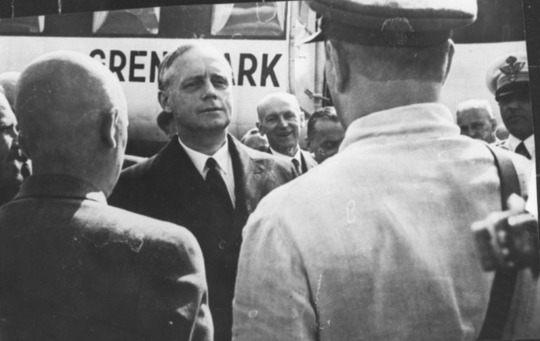
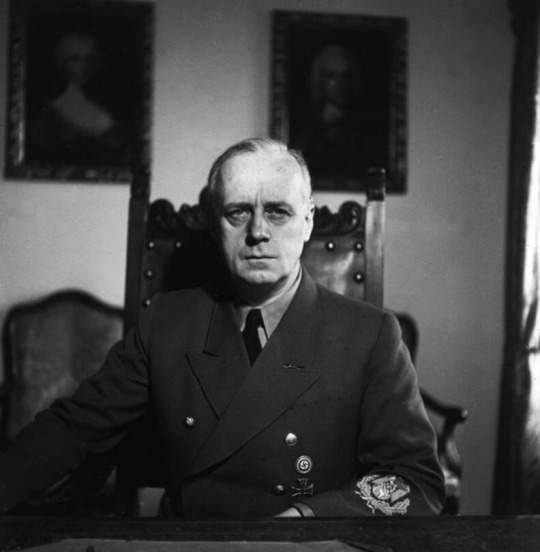
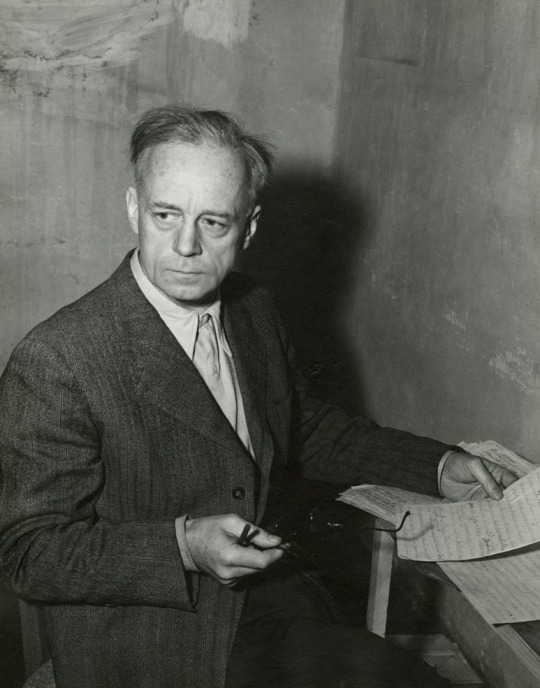
Continuing my Nuremberg Defendants series. Check links to see posts I've made on previous defendants (Hess wasn't part of the series, but I've already made a post about him):
Rudolf Hess
Alfred Rosenberg
-Joachim von Ribbentrop was born as Ulrich Friedrich Willy Joachim Ribbentrop on the 30th of April, 1893. He was not born into aristocracy (his father did not have the “von” in his name), Joachim grew up in an average middle class family with an older brother and a younger sister.
-Ribbentrop's mother died from tuberculosis when he was still very young. This event undoubtedly had an effect on him for the rest of his life (and I will explain in detail as we go further).
-He had no formal education after the age of fifteen. In school Ribbentrop was an underachiever and showed no signs of being an academic. His father had paid for French and English language tutors to teach him both languages.
-At seventeen, Joachim and his brother were sent to London for a year to polish up their English. After that year they both moved to Canada.
-Ribbentrop's life in Canada seemed to have been a happy one. He was popular, invited to many parties and was argued to have been sort of a ladies man. He worked as a banker and also as a construction worker, going on to help the reconstruction of the Quebec Bridge. Ribbentrop also had a passion for dancing and ice skating. he was even a member of a Canadian ice skating team.
-It was during this time that both Ribbentrop and his brother came down with tuberculosis. Ribbentrop's brother died, however Ribbentrop fortunately survived but had to have one of his kidneys removed. The effects of having his kidney removed were very clear. His left eye would sometimes droop, giving the effect of him looking tired. As a result he had a crippling inferiority complex.
-When the Great War broke out, Ribbentrop carefully returned to Germany to fight for his nation. It was during the war when Ribbentrop first met Franz von Papen (who will be the topic of a future post), a man that went on to become Chancellor under the Weimar Republic.
-After the war, Ribbentrop made a living out of his champagne business, which involved smuggling champagne from other countries. At this time, Ribbentrop was friends with Jewish people, even doing business with them. Ribbentrop was the only member of the inner circle that had previously moved around Jewish circles prior to joining the Nazi Party. He had no strong opinions at the time, people knew him as a moderately conservative monarchist. At elections he would vote for the DVP.
-Gradually Ribbentrop's personality began to change. Gone was the polite and somewhat shy young man, now he was becoming more insufferable as he went on long rants on the dangers of communism. What's more is that Ribbentrop had asked his aunt to adopt him aged in his early thirties so he could add the 'von' (a sign of German nobility - his aunt was a 'von Ribbentrop') to his name. His aunt agreed but was required to pay her a regular sum of money. When he stopped paying, his aunt took him to court and forced him to continue paying.
-In 1920, Ribbentrop married Anna Elisabeth Henkell (Annaliese to her friends). Anna's parents were not fond of Ribbentrop and considered him to be an idiot. The marriage produced five children, and Ribbentrop's eldest (Rudolf von Ribbentrop - born 1921) went on to serve in the Second World War as well as writing a book about his father post-war. Anna was a very ambitious woman and often pushed Ribbentrop around in all matters, including political. Hitler noted that it was clearly her who wore the trousers in the relationship.
-Fascinatingly, Ribbentrop didn't join the Nazi Party until 1932, which was around the time that Hitler was starting to get desperate for power. In late 1932, Hitler was using Ribbentrop's house to hold talks with Franz von Papen (as Papen was an old war friend of Ribbentrop's - and at this time Papen had lost his job as Chancellor of Germany, he was looking for a way to return to power. This moment in history is often referred to as the “Backstairs Intrigue”.)
-For the first few years of the Nazi regime, Ribbentrop had no government role. He mostly spent time in Britain and France, trying to establish connections for Hitler. In 1936, he was made Ambassador to Britain after the incumbent had died suddenly of a heart attack. Ribbentrop's appointment was unexpected, nor did he want the role. Prior to becoming ambassador, Ribbentrop was fond of holidaying in Britain and had hoped to one day retire in St Ives in Cornwall.
-He had a very bad reputation as ambassador and was dubbed 'von Brickendrop' due to his multiple gaffes while in this role. His most famous was when he almost knocked over King George VI by doing the Nazi greeting when the King had reached to shake Ribbentrop's hand. He was not well liked by the British Press nor the British public. Throughout his position (which lasted just over a year) he spent no longer than just a few weeks in London, mostly to stay close to his beloved Führer back home. Overall, his experience as Ambassador turned Ribbentrop from being an Anglophile to an Anglophobe.
-In 1938 Ribbentrop was made Foreign Minister, succeeding Konstantin von Neurath (who will be the topic of a future post). This was the position that Ribbentrop had dreamed of (and a position that his long-term enemy, Alfred Rosenberg, had also hoped for). In this role, Ribbentrop had significant influence over Hitler in the early years of World War 2, even encouraging Hitler to invade Poland despite threats from the British as he claimed “they would not fight seriously.” In this post, Ribbentrop's proudest achievement was his Molotov-Ribbentrop Pact (also referred to as the German-Soviet Nonaggression Pact). After the invasion of the Soviet Union in 1941, Ribbentrop gradually lost influence in his role as Foreign Minister.
-Ribbentrop's role in the Final Solution was fairly ambiguous, but he was most certainly aware that atrocities were taking place. Ribbentrop preferred to look the other way and have someone else do the work. From August 1941, Ribbentrop ordered all future communications sent to the Foreign office to be directed to the office of his subordinates. There is no evidence that Ribbentrop intervened in the exterminations, except on one occasion which was purely on the issue of jurisdiction, rather than humanity. Ribbentrop had involved himself in other war crimes, such as legalising and encouraging the lynching of captured Allied bomber crews in Germany. Although the likes of Göring opposed such measures, and the army favoured it in only a few circumstances, Ribbentrop wished to Lynch the perpetrators of 'every type of terror attack on the German population”, despite this being a violation of international law. This was the main charge against him on count 3 of the Nuremberg indictment (war crimes).
-From 1945, Ribbentrop was essentially powerless. After the suicide of Hitler on the 30th of April (ironic because that's also Ribbentrop's birthday), Ribbentrop fled to Flensburg in an attempt to secure a role in the Dönitz government. Ribbentrop was quickly turned down and so fled to Hamburg, where he went by the alias Johann Riese. He was captured by the British after his whereabouts had been exposed. Ribbentrop was discovered asleep, wearing pink and white pyjamas and a small tin of poison attached to his genitals. Upon being woken up, he began to mumble nervously in German, but as soon as he became conscious of the situation, he spoke in perfect English a prepared speech: “The game is up. I congratulate you. You know who I am. If you had come two days later, I would have already given myself up voluntarily.” The British had also discovered a letter written by Ribbentrop to “Vincent Churchill” (not a spelling mistake on my part, that's Ribbentrop's mistake).
-At Nuremberg, Ribbentrop was a depressed and broken man. So much so that his lawyer (Dr Martin Horn) feared he was close to a psychological breakdown. In fact, Ribbentrop was considered one of the worst suicide risks at Nuremberg, and prison Psychiatrist Dr Kelley was instructed to keep a close eye on him. Ribbentrop's first lawyer was Dr Fritz Sauter (who was also acting for Baldur von Schirach - a subject of a future post), however at the start of 1946 he ceased to be his lawyer either because Ribbentrop dismissed him or he resigned out of exasperation (sources differ on this). Ribbentrop was therefore represented by Dr Martin Horn. On the witness stand, Ribbentrop was a mess and had a tendency to ramble and contradict himself.
-Ribbentrop was found guilty on all four counts of the Nuremberg indictment and was sentenced to death by hanging. He spent his last few days closely studying his Bible. After the unexpected suicide of Göring on the night of the executions, Ribbentrop was the first to be hung. On the scaffold his last words were: “God protect Germany, God have mercy on my soul. My final wish is that Germany should recover her unity, and that, for the sake of peace, there should be understanding between East and West.” He then turned to the Protestant Pastor Gerecke and said “I'll see you again.” Ribbentrop's hanging was badly botched, his neck didn't snap when falling through the trapdoor, therefore strangling him to death. Ribbentrop took around 10-20 minutes to die.
33 notes
·
View notes
Text
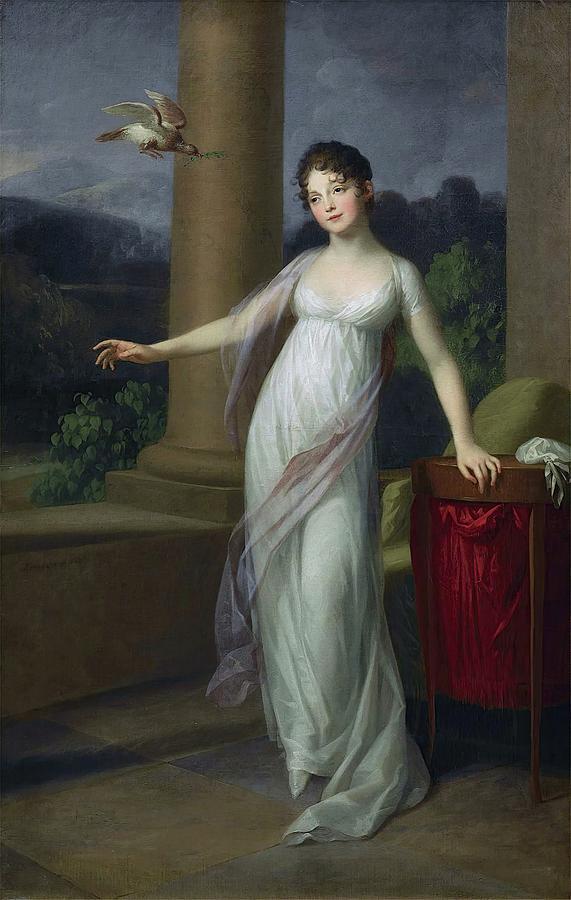
Amalie Von Levetzow
Artist: Johann Friedrich August Tischbein (German, 1750-1812)
Date: 1803
Medium: Oil on Canvas
Collection: The Goethe House, Frankfurt, Germany
Amalie Von Levetzow
Amalie Theodore Caroline von Levetzow (née von Brösigke; 1788 - 1868) was a German noblewoman.
In 1803 she married Joachim Otto Ulrich von Levetzow (25 March 1777 - 28 January 1843). Earlier that year she was painted by Johann Friedrich August Tischbein. She and Joachim had two daughters, Ulrike and Amalia (or Amélie), but then the couple divorced. She then married his cousin Friedrich Carl Ulrich von Levetzow, who was killed at the Battle of Waterloo. She and Friedrich had one child, Bertha.
In 1821, 1822 and 1823 she and her children stayed at Marienbad, where she met daily with the 72-year-old Johann Wolfgang von Goethe. They became friends and he fell in love with Ulrike, then only seventeen. He sent her a marriage proposal via Amalie, having not mentioned it before to her or Ulrike. Karl August, Grand Duke of Saxe-Weimar-Eisenach met with Ulrike's mother to speak in Goethe's favour and - though she felt she could not refuse the Grand Duke - she stated any final decision must rest with Ulrike. She never mentioned the proposal to Ulrike, who never married. Goethe wrote of the situation in his Marienbad Elegy.
Amalie married a third time in 1843 to Franz Josef von Klebelsberg-Thumburg zu Třiblitz (24 July 1774 - 28 December 1857), President of the Hofkammer of the Austrian Empire and a count in the Bohemian nobility. After his death she inherited his estate at Třiblitz - she died there and left it to Ulrike.
#portrait#woman#bird#architecture#costume#garden#mountains#german#noblewoman#johann friedrich august tischbein#european culture#german artist#oil on canvas#19th century
4 notes
·
View notes
Text

Auguste Viktoria Friederike Luise Feodora Jenny of Schleswig-Holstein, Empress consort of Germany and her son Prince Joachim Franz Humbert of Prussia
German vintage postcard
#auguste viktoria#tarjeta#postkaart#sepia#humbert#auguste#carte postale#holstein#ansichtskarte#viktoria#schleswig#german#briefkaart#photo#photography#consort#postal#postkarte#schleswig-holstein#empress#vintage#friederike luise feodora jenny#joachim#franz#prince joachim franz humbert#postcard#historic#jenny#prussia#germany
4 notes
·
View notes
Text
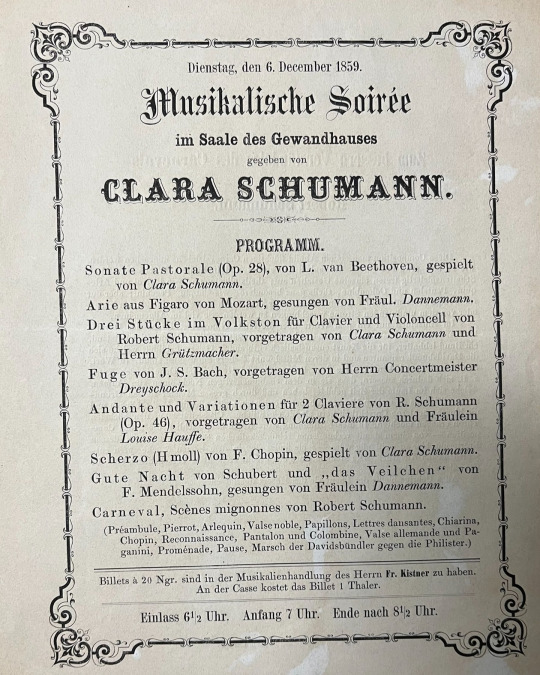

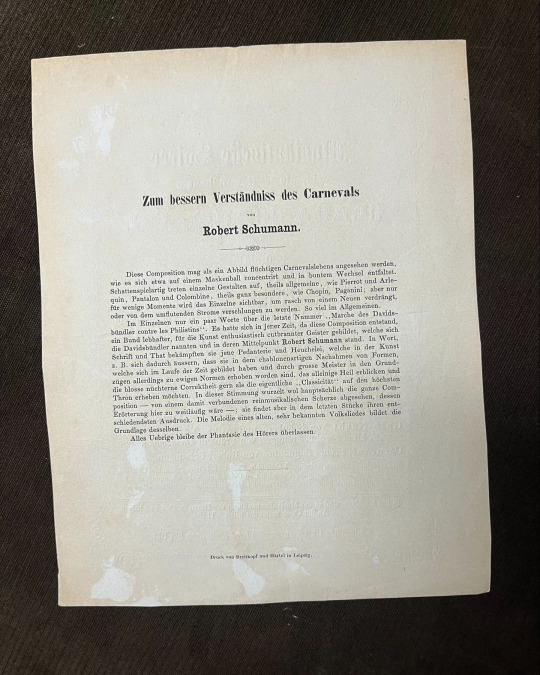

OTD in Music History: Historically important virtuoso pianist and composer -- and widow of legendary composer Robert Schumann (1809 - 1856) -- Clara Schumann nee Wieck (1819 - 1896) is born in Leipzig, Germany. Regarded as one of the most distinguished pianists of the 19th Century, Clara exerted tremendous influence over the musical culture of Europe throughout her remarkable six-decade career. A child prodigy who was trained by her father, she embarked on her first international concert tour at the age of just 11. While still a teenager, Clara married Robert against her father’s loud protestations. Although the marriage was a happy one which produced eight children, she was thereafter forced to sublimate her career to husband’s career for nearly twenty years. It was only after Robert was confined to an insane asylum in the 1850s that Clara truly blossomed as a mature virtuoso, bolstered by her close personal and professional relationships with Johannes Brahms (1833 - 1897) and violin virtuoso Joseph Joachim (1831 - 1907)... PICTURED: An original copy of the program that was handed out to audience members who attended a concert which Clara gave in her hometown of Leipzig in 1859, sponsored by famous German music publisher Breitkopf & Haertel. Very much in keeping with her “conservative” musical bent as well as her tireless dedication to furthering her late husband’s musical legacy, at this concert Clara performed a Sonata by Ludwig van Beethoven (1770 - 1827); accompanied a singer in an Aria from W.A. Mozart’s (1756 - 1791) “Marriage of Figaro” and two Lieder written by Franz Schubert (1797 - 1828) and Felix Mendelssohn (1809 - 1847); played one of Frederic Chopin’s (1810 - 1849) Scherzos; and then topped it all off with several works written by Robert – including his beloved suite of character pieces, “Carnaval.” Quite a program!
#Clara Schumann#Schumann#classical music#music history#composer#classical composer#classical studies#classical pianist#pianist#piano teacher#piano#classical piano#teacher#pedagogue#piano concerto#concerto#concert#Teaching#classical musician#classical musicians#classical#musician#musicians#hisrorian of music#music#music education#classical history#virtuoso#maestro#diva
12 notes
·
View notes
Text
DAS ERZGEBIRGE FEST - DIGITAL
.
DAS ERZGEBIRGE FEST - DIGITAL
Staatskapelle Dresden in der Sächsischen Schweiz -
youtube
Nº2
Carolin Masur & Sächsische Staatsoper Dresden - Stille Nacht, Heilige Na… https://www.youtube.com/watch?v=wMtdPIFmL2o%C2%A0v%C3%ADa+YOUTUBE&feature=youtu.be Nº3 Dresdner Kreuzchor - Weihnachtsoratorium (Johann Sebastian Bach) https://youtu.be/cWKJFogshwg vía @YouTube Nº4 Der sächsische Bildhauer Johannes Schilling (* 23. Juni 1828 in Mittweida; † 21. März 1910 in Klotzsche bei Dresden) war ein deutscher Bildhauer. https://de.wikipedia.org/wiki/Johannes_Schilling Bildwerke 1861–1868: Vier Tageszeiten von Johannes Schilling Brühlsche Terrasse, Theaterplatz… https://www.youtube.com/watch?v=19LDRavq3cg%C2%A0v%C3%ADa+%40YouTube&feature=youtu.be 1891/92: Semper-Denkmal auf der Brühlschen Terrasse in Dresden https://de.wikipedia.org/wiki/Gottfried-Semper-Denkmal Nº5 Matthias Grünewald (16. Jahrhundert) https://de.wikipedia.org/wiki/Matthias_Gr%C3%BCnewald Nº6 Der Sächsische Kunstverein https://de.wikipedia.org/wiki/S%C3%A4chsischer_Kunstverein
Nº7
1-A)
DIE MUSIK: NIEDERSACHSEN
Johann Joachim Quantz : DIE BIOGRAPHIE (* 30. Januar 1697 in Scheden (Kurfürstentum Braunschweig-Lüneburg) https://de.wikipedia.org/wiki/Johann_Joachim_Quantz
Johann Joachim Quantz
Tempo di Gavotta (Sonata 1 D-Major for flute+organ - Thomas Beie)
https://youtu.be/t1jUk_rIYCA vía @YouTube
“Gran Minuetto con Variazioni” https://youtu.be/QDd-76cOGEI vía @YouTube
1- Grave - Sonata XIV en sol menor https://youtu.be/RbaOCR1ewsI vía @YouTube
Flute Concertos https://youtu.be/XubfFd0nkoI vía @YouTube
Ludwig Spohr: DIE BIOGRAPHIE https://de.wikipedia.org/wiki/Louis_Spohr
Ludwig Spohr
Messe in c-moll, op. 54 https://youtu.be/yuYfDWcBHbE vía @YouTube
Duo for Violin and Viola in E minor https://youtu.be/wXsKmUd0H8U vía @YouTube
Sonata para violín y arpa en do menor. II. Andante-Allegro https://youtu.be/VXM8d_FFhfM vía @YouTube
Symphony Nº9,Op.143(1850)“The Seasons” https://youtu.be/LFUIR3h-fcg vía @YouTube
“The Last Judgement” - Heilig ist Gott der Herr /… https://youtu.be/9IsUNiOJ0UU vía @YouTube
1-B) DIE MUSIK: SACHSEN Johann Gottlieb Naumann: DIE BIOGRAPHIE (* 17. April 1741 in Blasewitz; † 23. Oktober 1801 in Dresden) https://de.wikipedia.org/wiki/Johann_Gottlieb_Naumann
Johann Gottlieb Naumann
Sinfonia I. D-Dur https://youtu.be/no_i5JDOtWQ vía @YouTube
Kommt herzu (Kantate) https://youtu.be/HcyGy4922fI vía @YouTube
Psalm - Singet dem Herrn ein neues Lied https://youtu.be/b9RZiM484IU vía @YouTube
Te Deum https://youtu.be/JjR19SBaDOs vía @YouTube
Missa No.18 in D-minor (1794) https://youtu.be/qPmrq7P98cs vía @YouTube
DIE BIOGRAPHIE: Heinrich August Marschner https://de.wikipedia.org/wiki/Heinrich_Marschner
Heinrich August Marschner
»Der Morgentau« (Op. 87 Nr. 2) https://youtu.be/MID5ft4EUyo vía @YouTube
Johann Paul von Westhoff: DIE BIOGRAPHIE (* 1656 in Dresden; begraben 17. April 1705 in Weimar) http://www.radioswissjazz.ch/de/musikdatenbank/musiker/254974fa2b577a3dbe733ba3b930a3b1c89289/biography
Allemande & Courante from the A major suite for solo violin https://youtu.be/2YtNbH3hn1A vía @YouTube
Suites for Solo Violin (Kolja Lessing) https://youtu.be/34iZsGgufmg vía @YouTube
6 Sonates for Violin et Basso Continuo https://youtu.be/DOIRJoHnZYQ vía @YouTube
1-C) DIE MUSIK: SACHSEN - ANHALT
Johann Gottfried Reiche: DIE BIOGRAPHIE (* 5. Februar 1667 in Weißenfels; † 6. Oktober 1734 in Leipzig) https://de.wikipedia.org/wiki/Gottfried_Reiche
Johann Gottfried Reiche Abblasen https://youtu.be/483AdTgZP14 vía @YouTube
Fuga - Posaunenchor Hochstadt https://youtu.be/nGzpXeXcrwg vía @YouTube
1. Sonatina aus “Turmsonaten” https://youtu.be/vT6bJ_o0C2A vía @YouTube
Georg Philipp Telemann: DIE BIOGRAPHIE (14. März 1681 - 25. Juni 1767) http://www.klassikakzente.de/georg-philipp-telemann/biografie
20 little Fugues for Organ TWV 30:1-20, Franz Loerch Organ https://youtu.be/W8PzwLUyKe4 vía @YouTube
Concert for trumpet and organ in D https://youtu.be/WQiRPvGy5Yo vía @YouTube
DIE TAGESZEITEN https://youtu.be/WZWEN_7B63s vía @YouTube
Matthaus Passion https://youtu.be/ZPkh7vyUht8 vía @YouTube
1-D) DIE MUSIK: THÜRINGEN Heinrich Schütz: DIE BIOGRAPHIE https://de.wikipedia.org/wiki/Heinrich_Sch%C3%BCtz
Heinrich Schütz Symphoniae Sacrae I https://youtu.be/KJlpATkd5B0 vía @YouTube
Symphoniae Sacrae II https://youtu.be/u-qYLruhPXM vía @YouTube
Johann Sebastian Bach: DIE BIOGRAPHIE http://www.klassika.info/Komponisten/Bach/lebenslauf_1.html
Magnificat in D major, BWV 243 - Harnoncourt https://youtu.be/Vr5cKdC3v3E vía @YouTube
J.S.Bach-Toccata e Fuga BWV 565-Karl Richter https://youtu.be/Zd_oIFy1mxM vía @YouTube
Hallelujah https://youtu.be/0S6Tjvaj19Q vía @YouTube
2)
Die Ornithologie Johann Friedrich Naumann (SACHSEN -ANHALT) https://de.wikipedia.org/wiki/Johann_Friedrich_Naumann Johann Andreas Naumann (SACHSEN -ANHALT) (* 13. April 1744 in Ziebigk bei Köthen; † 15. Mai 1826 ebenda) https://de.wikipedia.org/wiki/Johann_Andreas_Naumann Der König von Sachsen Vogel-Paradies (Pteridophora Alberti) King-of-Saxony Bird-of-Paradise (Pteridophora Alberti) (Adolf Bernhard Meyer (11 October 1840, Hamburg – 22 August 1911, Dresden)) https://youtu.be/MdNyeasi0GI vía @YouTube
2-A Semper, Gottfried http://www.deutsche-biographie.de/sfz80027.html Nº8 Stollen (Gebäck) https://de.wikipedia.org/wiki/Stollen_(Gebäck) Nº9 Weihnachten in Dresden – Typisch sächsische Traditionen https://storify.com/reisen_online/weihnachten-in-dresden-typisch-sachsische-traditio… Nº10 Traditionelles HandwerkfHandwerk

2 notes
·
View notes